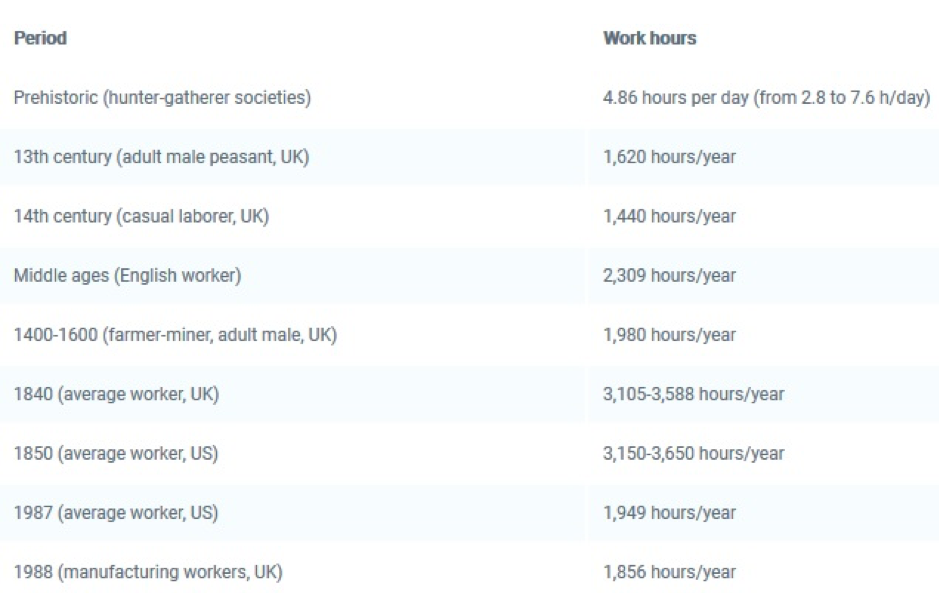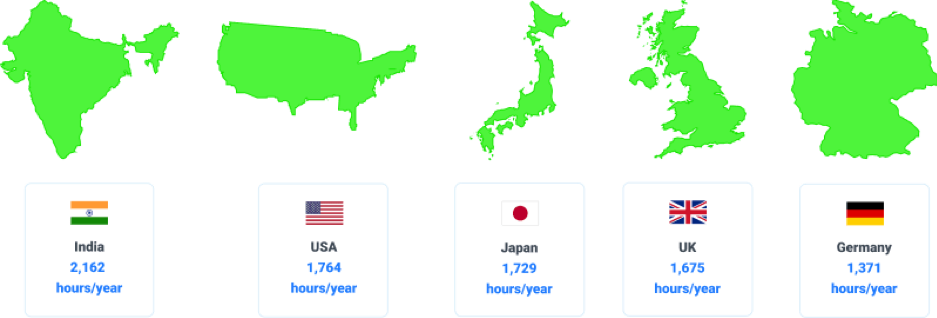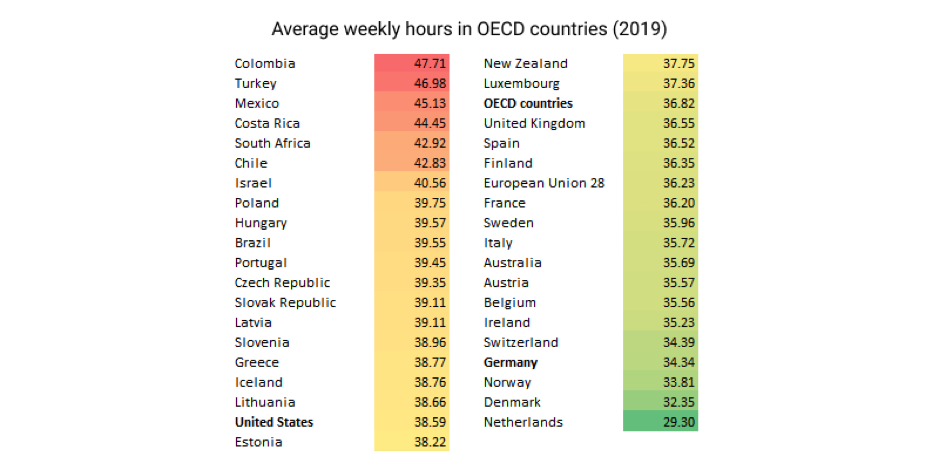Follow Lilach
Is the 4-day workweek experiment actually working?
My name is Lilach Bullock and…
I am a workaholic.
There, I said it.
6-day workweeks (and sometimes, 6 and a half) and 18-hour workdays are concepts that I’m intimately familiar with.
It took me a long time to wind down and try to work fewer hours per day. But, as I admitted earlier… I’m very much a workaholic so it’s been a bit of a learning curve.
But when I moved to Israel about a year and a half ago, I found myself in an interesting position:
I was working with companies all over the world, who followed the “regular” weekly schedule of having Saturdays and Sundays off. But I was also in a country where the weekends are quite different: Fridays and Saturdays.
And working on a Friday here? Complete no-no.
So I took a very drastic decision (at least, drastic for my workaholic self): I decided to test the infamous 4-day workweek. I’d heard whispers about it and I was intrigued.
And well, I had the perfect opportunity to try it out.
Fridays would be for shopping and preparing for the weekend (Shabbat)
Saturdays for spending time with friends, relaxing and lots of eating!
And Sundays would be for relaxing, swim and beach day!

But first though, what is the 4-day workweek — and how did we get here as a society?
The history of work and work hours
Big changes happened once the Industrial Revolution was in place. Time was worth money at that point and business owners had to come up with new ideas to plan the working hours and the distribution of workers for each type of job. Because the transition was hard and the market demands were in continuous growth, some company owners took desperate measures like adjusting the clocks to make people work more than normal.
The next big step was taken in the 20th century when the only thing that could lead to success was productivity. In 1926, Henry Ford decided to reduce the number of working hours to 40 per week. Besides, Frederick Winslow Taylor discovered that, for increased productivity, it was more efficient to divide and simplify the tasks of each worker. Someone had to observe that all workers fulfilled the given tasks, so the management positions were created.
According to Clockify, the number of working hours has increased and then decreased substantially from the Prehistoric period to the industrialized era.

Nowadays, people would prefer to work more in less time so they can relax and spend more personal time with their families. Here is an example of the number of average hours these five countries have per year:

These are the average weekly hours a person had to work in 2019:

Along with technological evolution, there were a lot of great changes. I believe that work is essential, but it should not consume people entirely.
So, is the 4-day workweek a good idea?
The idea of a 4-day workweek sounds great in theory. It can change the stressful feeling of knowing that you only have two days to relax before getting back to work. It would add a little extra time for employees to recharge their batteries and start the new week with renewed powers. It gives parents the chance to spend more time with their children.
This would be a most-welcomed change amongst most people, even if they are employed or business owners. However, even though this experiment has proven to be successful with companies like Microsoft, there is a huge difference between small companies and corporations: the number of employees.
And that is what I found out by experimenting with the 4-day workweek concept: with every 3-day weekend I took off, there was so much more work to be done the next week.
I had to wake up earlier and stop working much later every day to keep up with everything.
After a few months of this experiment, I was struggling to say the least. Not only because I had to work more during those 4 days but also because of the unfortunate but very obvious side-effect: there was more stress.
That being said, I also remember working for big corporations.
And I remember having to bring books to work with me because there simply wasn’t enough to do. Sure, there were some very busy periods — but there were also so many downtimes where there simply wasn’t enough work (even though employees still had to come into work!)
But as a small or medium-sized business, there never really is a downtime. There is always work to be done — leads to generate, content to create, emails to send, potential customers to follow up with.
Because if you want your business to grow, you need to make the most of your resources — and there aren’t nearly as many resources available as a corporation has.
So, is the 4-day workweek experiment worth it?
In my opinion, the answer to this question is both yes and no.
And at the end of the day, it depends on you: how you work and when you’re at your most productive,
For example, I get the bulk of my work done in 2 hours every day: between 7 and 9 a.m. This is when I’m most productive — in fact, I would say I get more done during those 2 hours than I do the rest of the workday.
“The key is not to prioritize what’s on your schedule, but to schedule your priorities” — Stephen Covey
The key is to come up with an effective work plan based on your patterns. Keep track of your routines, the best moments of the day when you feel you are productive, the number of hours of rest you need to be in shape, and the amount of work you can do in a given time.
If you think you can manage to deliver the same amount of work from five days in only 4, then you might have a chance. You are the only person that can make decisions regarding your abilities and limits. Be honest with yourself and don’t let your judgment be clouded by the idea of a bigger weekend while you are still sitting at your desk working overtime to catch up.
“You get to decide where your time goes. You can either spend it moving forward, or you can spend it putting out fires. You decide. And if you don’t decide, others will decide for you.” — Tony Morgan
Conclusion
In my opinion, the 4-day workweek can be a winning strategy for some — i.e. corporations with lots of employees! — but for others, particularly small and medium-sized businesses, it can mean lost opportunities — and a lot of unfinished work.
I’ve personally experienced both: I worked for big companies and built and ran my own businesses. In a big company, it’s not unheard of to have days when nothing happens and you can easily read a book — or watch a couple of movies.
As a small or medium-sized business though, even when you’ve finished all your tasks, there’s still more work to be done: finding clients, generating leads and keeping your existing customers happy.
What do you think? Have you tried the 4-day work-week?

Follow Lilach















